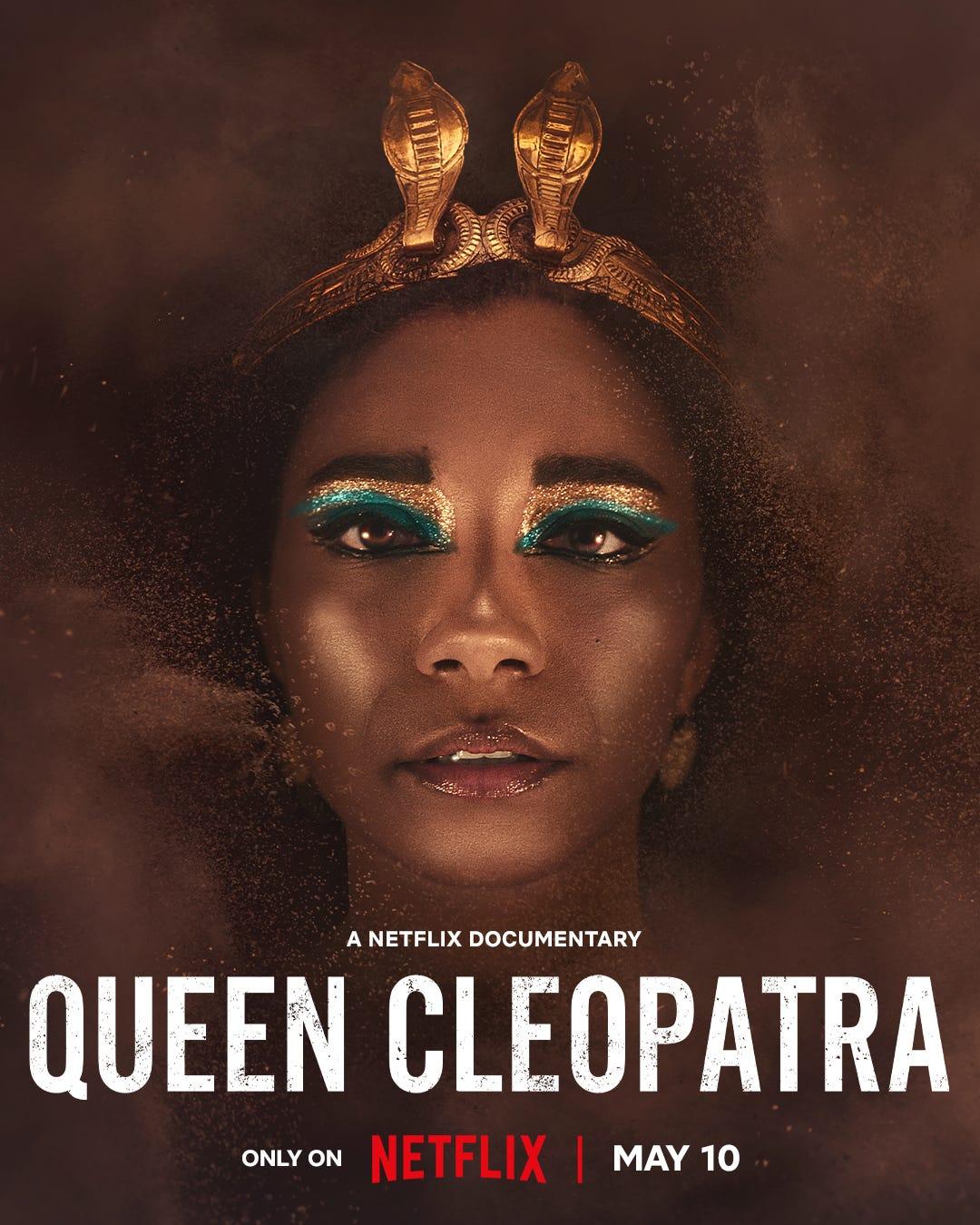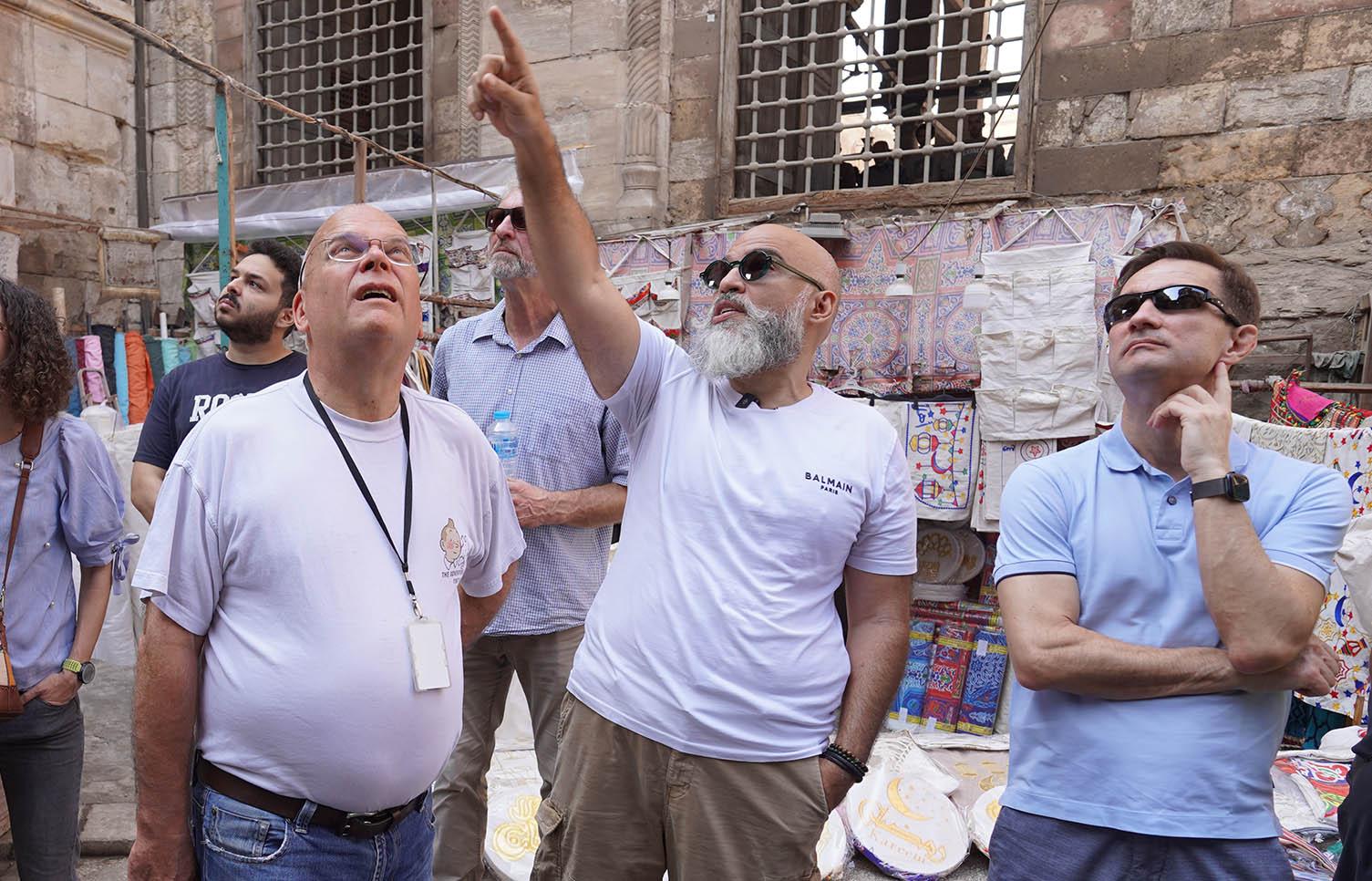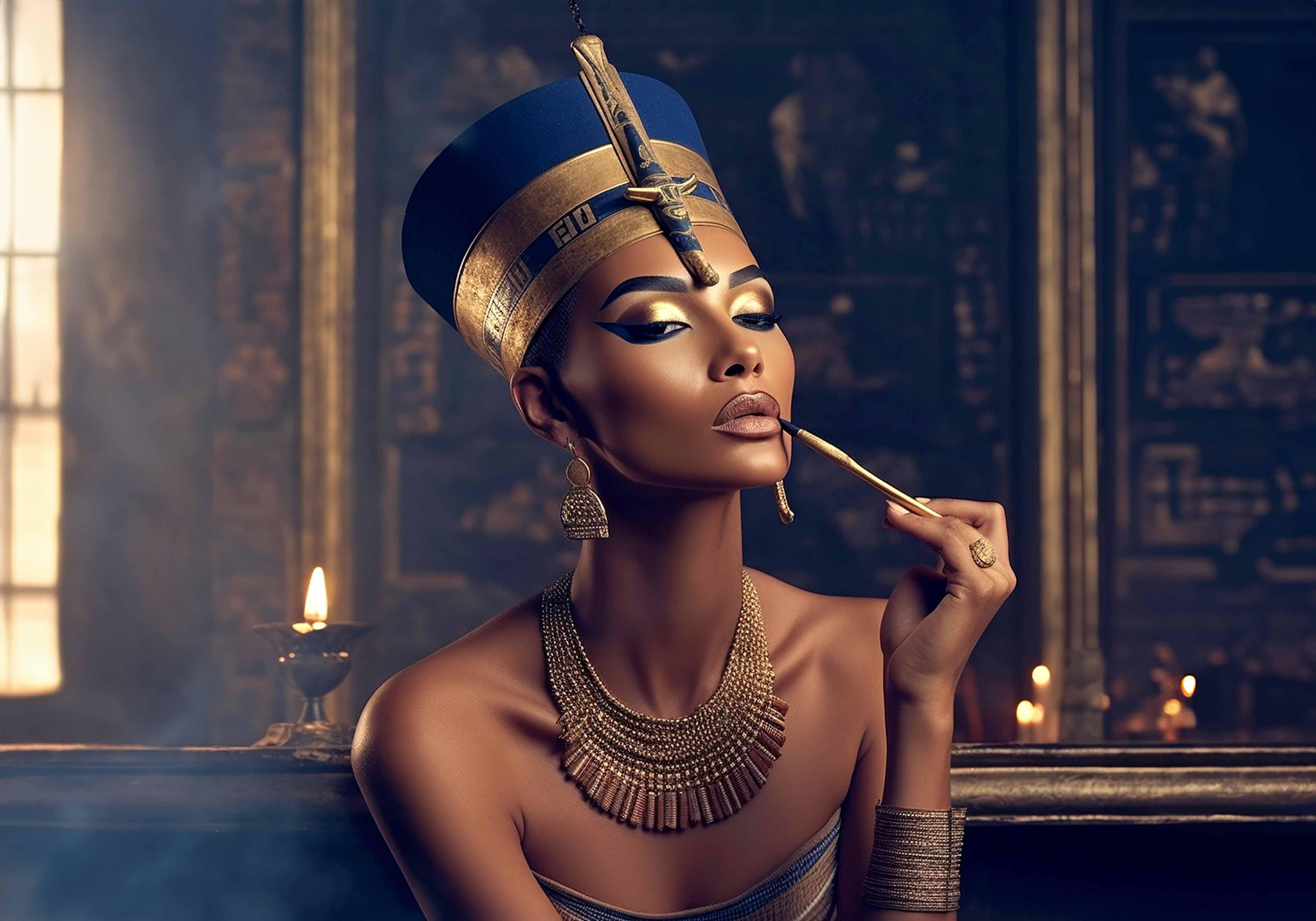
Written by: Mahmoud Demerdash
Date: 2023-09-26
Cultural Heritage Under Siege: Afrocentric Desire upon Egypt
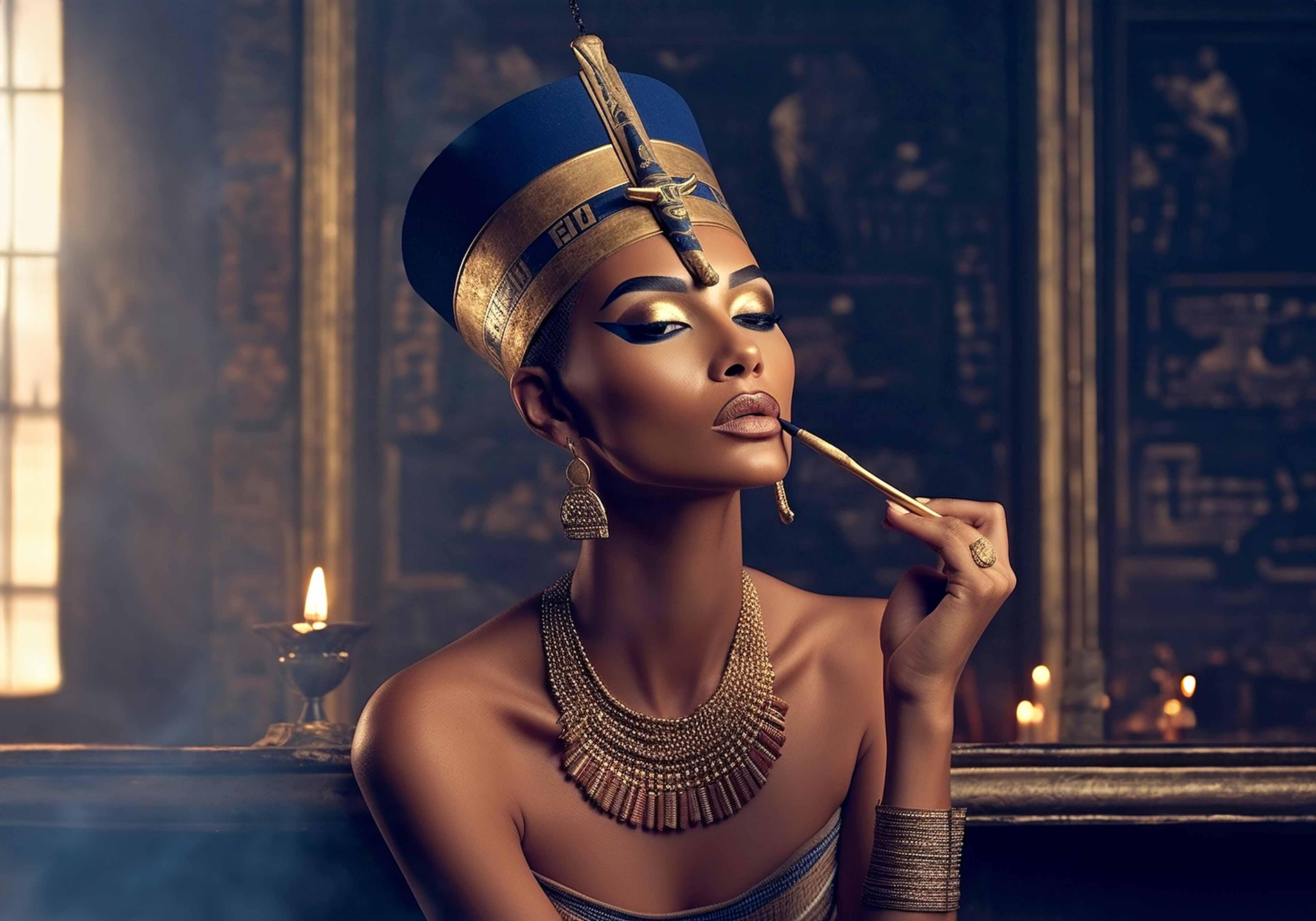
Cultural Heritage Under Siege: Afrocentric Desire upon Egypt
Since the dawn of humanity, the quest to understand one's identity and roots has been deeply ingrained in our nature. The desire to connect with our origins, to seek a sense of belonging, and to understand our place within the broader context of history and nature has been a driving force throughout our existence. Jean-Jacques Rousseau once said, “I feel an indescribable ecstasy and delirium in melting, as it were, into the system of being, in identifying myself with the whole of nature.” This quote captures individuals' profound connection when they recognize themselves as an integral part of the natural world. This sentiment also applies to our search for ancestral history. Discovering the lives of our predecessors can evoke a powerful sense of connection and pride. It links to the past, allowing us to understand the trials, triumphs, and contributions of those who came before us. With its rich and storied history, Egypt is a prime example of a civilization that continues to captivate people's imaginations. Its ancient culture, monumental architecture, and significant contributions to art, science, and philosophy have left an indelible mark on human history. For those with Egyptian heritage, this history becomes a source of pride and inspiration, connecting them to a legacy that spans millennia, so it should come as no surprise that there are those who wrongfully look to claim this heritage for themselves.
The appropriation of our culture is not a new phenomenon. Across Egypt's rich history, various empires that aimed to integrate us into their dominions embraced Egyptian culture as if it were their own. The zeal of "Egyptomania" in the 19th century witnessed the widespread adoption of our symbols, architectural styles, and fashion trends. Similarly, the early Hollywood films of the 20th century prominently featured a plethora of Egypt-themed movies, contributing to the global dissemination of our cultural heritage. However, the rise of Afrocentrism has brought forth a movement that strives to assert ownership over the Egyptian historical legacy while simultaneously challenging modern Egyptians' rightful connection to it. Afrocentrism is a cultural movement that emphasizes the significance of African history, culture, and contributions to the world. It seeks to reframe the narrative of history by placing Africa and its diaspora at the center of analysis and interpretation. The term "Afrocentrism" was popularized by scholar and historian Molefi Kete Asante in the 1980s. Originally, Afrocentrism aimed to challenge historical and cultural Eurocentrism, which has often marginalized or overlooked the achievements and perspectives of African civilizations and peoples. Yet, as the movement grew in popularity, a few looked to claim North African history for their own. A growing number of social media posts by these self-proclaimed Afrocentric individuals argue that the original Egyptian populace was exclusively of Black descent, insinuating that contemporary Egyptians are interlopers who arrived long after. These proponents endeavor to substantiate their assertions by scrutinizing the facial features of our iconic statues, using them as supposed "evidence" to support their contentions. They claim that Arab occupiers deliberately broke the noses of the Egyptian statues to erase any trace indicating their features, claims that have been disproven with historical evidence.
These imaginative notions lack substantive logic or historical validity, disregarding the intricate tapestry of Egypt's diverse past and the nuanced history of the Nile populace. Instead, they employ a simplistic "black and white" framework that might resonate with North American perspectives yet unjustly oversimplify the complex realities of the broader global context. The falsehood is increasingly finding itself in mainstream media and celebrity circles. One only has to look to present times to see the roots of such fallacies bearing fruit. Kevin Heart’s stand-up show in Cairo was canceled following social media backlash due to his noted support for the movement. The comedian once stated, “We must teach our children the true history of Black Africans when they were kings in Egypt and not just the era of slavery that is cemented by education in America. Do you remember the time when we were kings?”. Or even more recently, with the infamous Cleopatra “documentary” created by Jada Pinkett Smith, a prominent supporter of Afrocentrism in which an individual made some seemingly unverified assertion, asserting, “I don’t care what they teach you in school, Cleopatra was black.”. The “documentary” received global backlash and a 1.1 rating on IMDB for “blackwashing” history, as Zahi Hawass, the prominent Egyptologist, told national media at the time "Netflix is trying to provoke confusion by spreading false and deceptive facts that the origin of the Egyptian civilization is black." This incident underlines the detrimental impact of baseless claims on historical discourse, muddling people's understanding and appreciation of the rich heritage that encompasses Egypt's long-studied history. Furthermore, it perpetuates a disheartening oversight of other invaluable African legacies residing across the continent. These diverse narratives, emerging from myriad regions, are points of profound pride and stories that deserve acknowledgment. However, these self-proclaimed Afrocentrics remain remarkably sparing in their acknowledgment, for their unyielding pursuit blinds them to contrive a racially biased narrative, the motivations and ultimate objectives of which are shrouded in questionable intentions.
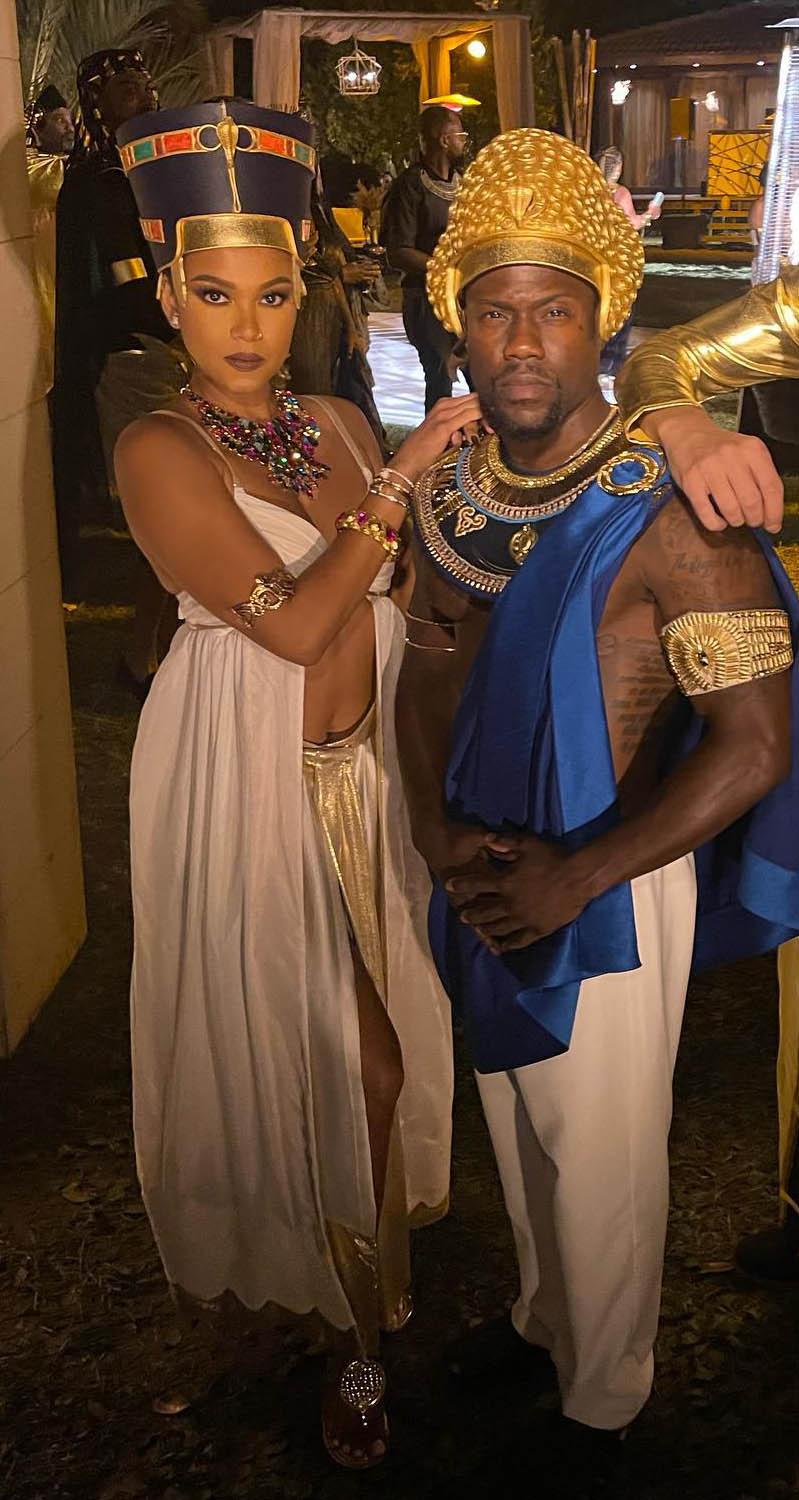
However, Egyptians are not idly observing from the sidelines. Demonstrating a proactive stance, the Egyptian documentary channel "al-Wathaeqya," operating under the Documentary Production Sector at the United Media Services Company, unveiled its plans to create a documentary centered around the authentic narrative of Queen Cleopatra. This documentary aims to provide a historically accurate portrayal of her life, shedding light on the ruler's significance. The channel's statement indicated that meticulous preparations are underway, involving collaborations with history, archaeology, and anthropology experts. This meticulous approach to research and study underscores the channel's commitment to presenting a well-informed depiction. Dr. Bassam Al-Shamaa, an Egyptian historian and international lecturer, believes “A global, influential scientific conference can put an end to the Afrocentric movement.” He believes utilizing science lays the means to combat Afrocentrism and the spread of misinformation. Dr. Al-Shamaa stated in one of his press briefs, “We should use knowledge and evidence to counter Afrocentrism rather than engaging in futile arguments.” He continued by stressing the manner in which it should be handled by saying, "Conjecture and emotional reactions should be replaced with evidence-based discussions on historical subjects.” Furthermore, a team of Egyptian jurists and archaeologists has taken a substantial step by demanding a substantial two-billion-dollar compensation from Netflix for distorting the representation of Queen Cleopatra and the broader ancient Egyptian civilization. In a letter addressed to UNESCO, the team asserts Egypt's entitlement to this compensation as a means of addressing distortions that impact the core of the "Egyptian identity." The letter also underscores Egypt's prerogative to employ legal measures to safeguard its tangible and intangible heritage, spanning from ancient to modern times. In order to counter Afrocentrism and elevate the nation's global standing, Egypt must be poised to engage further in this discourse. By fostering more involvement in global media cultivating talented actors, performers, and productions, the nation can strengthen its cultural narrative and challenge misrepresentations, thereby warding off further campaigns of disinformation.
